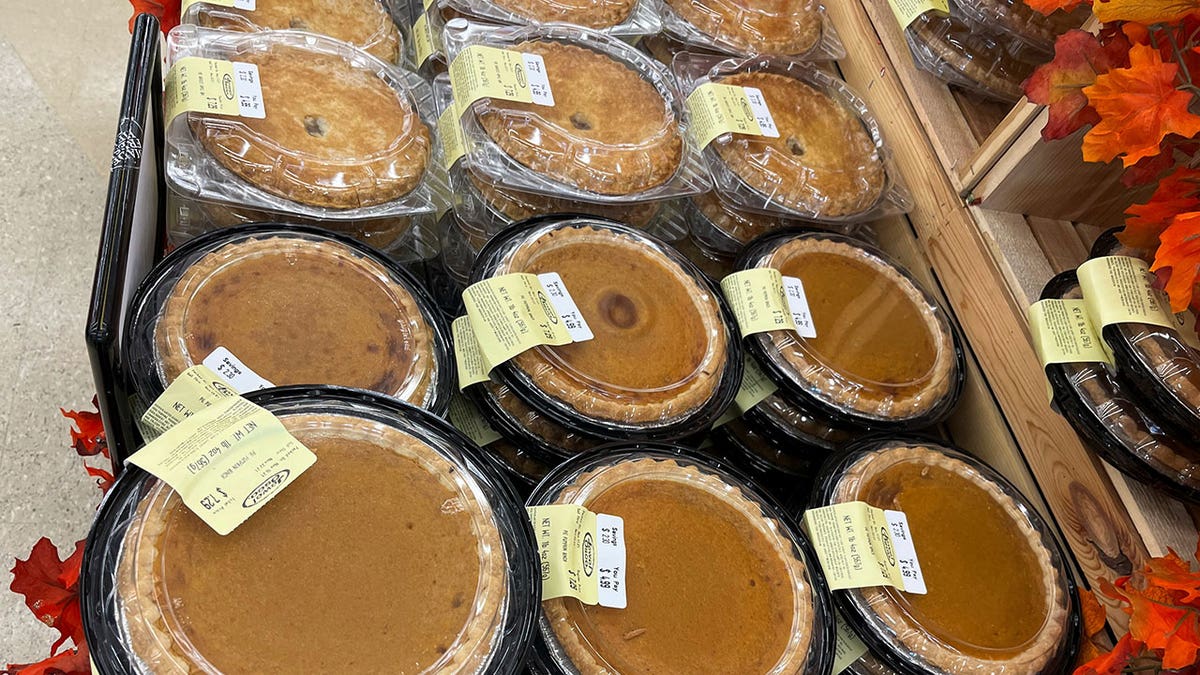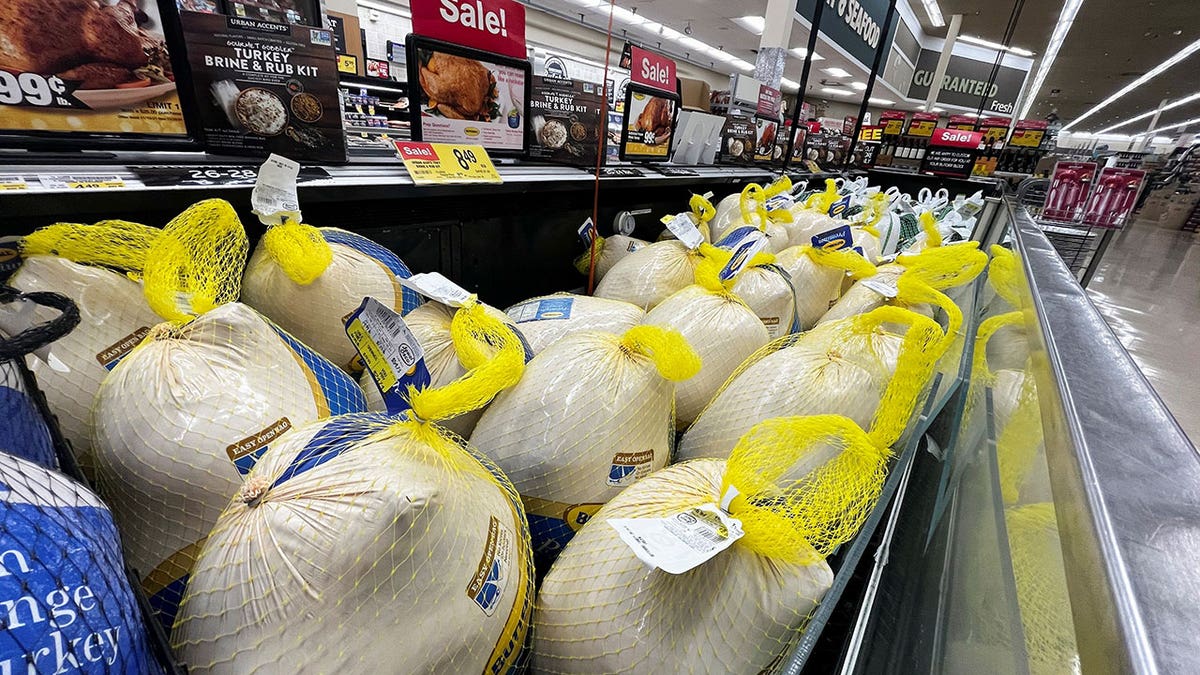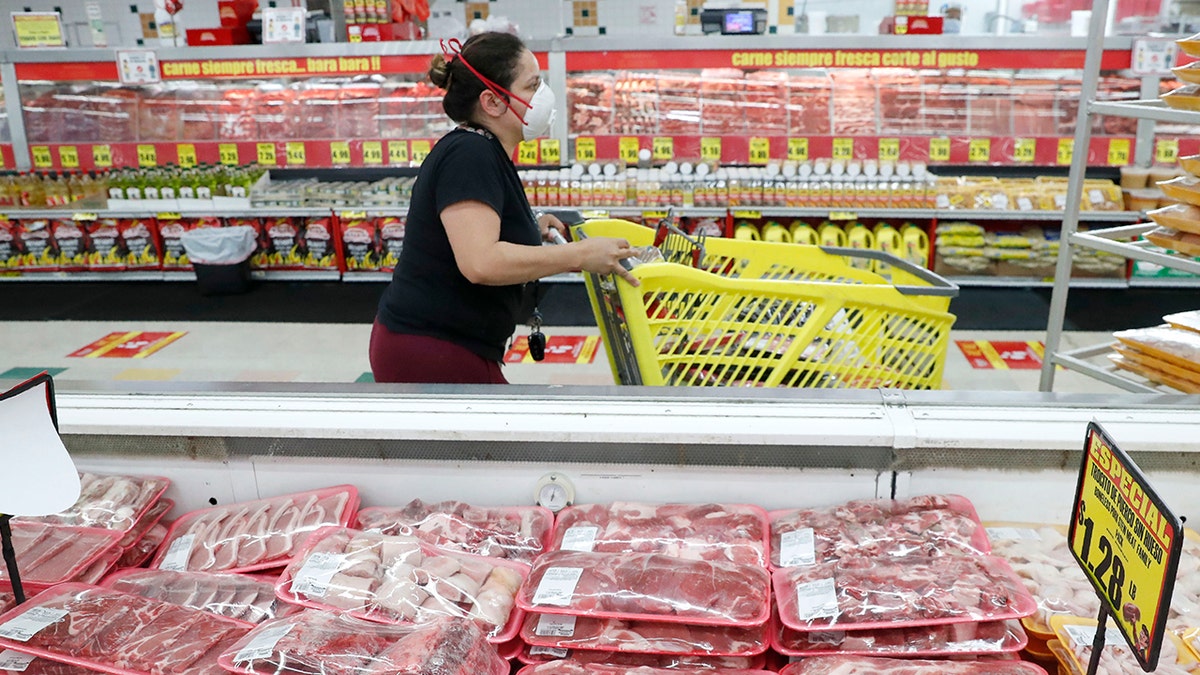Art Laffer: Inflation is Biden's problem now
Former Reagan economic advisor Art Laffer weighs in after President Biden reappointed Jerome Powell as chair of the Federal Reserve. He also weighs in on rising grocery prices ahead of the holiday season.
For months much of the media downplayed the effects of inflation and the supply chain crisis, with some even calling the economic hardship "good" for Americans despite it being an expensive burden on families this holiday season.
Most recently, Yahoo Finance wrote, "Maybe Christmas Shortages are a Gift." In his piece, senior columnist Rick Newman advocated for "partial Christmas" - not just in the current rocky climate, but for years to come.
"Save money, time and aggravation by exploiting the pandemic shortages to slash your shopping burden," he wrote.
"Collusion is illegal in business—but not in parenting," he later said. "So coax as many of your fellow parents into the scheme as you can. It’s a solid pitch: Save money, time and aggravation by exploiting the pandemic shortages to slash your shopping burden. Maybe you’ll actually enjoy the holidays for once. Use the money you save to buy something nice for yourself. If you’re nervous, keep some cash on hand for day-after clearance sales."
"Maybe Partial Christmas is more like real Christmas than the Excessive version," he concluded. "Gutsy parents have a chance to find out."

Pumpkin pies are displayed for sale at a Jewel-Osco grocery store ahead of Thanksgiving, in Chicago, Illinois, U.S. November 18, 2021. REUTERS/Christopher Walljasper (REUTERS/Christopher Walljasper)
MSNBC opinion columnist James Surowiecki similarly argued that inflation could actually be a good thing for the economy.
"Even though millions of Americans lost their jobs, enhanced unemployment benefits and stimulus payments left many of them better off, not worse," he wrote. "And the stock market, after initially falling, boomed."
Liberal media outlets have also managed to blame, mock or lecture Americans affected by the supply chain shortages. Time magazine was knocked for its "top-notch" journalism after publishing a piece entitled, "How American shoppers broke the supply chain."
Ahead of that report, The Atlantic also appeared to blame U.S. shoppers for the ongoing supply chain shortages.
"Supply chain problems could be solved more quickly if affluent Americans would stop buying up things they don’t need and often don’t even really want," the liberal magazine wrote last month.
New York Times writer Sarah Jeong accused those worried about inflation of "flipping their s---" over devalued assets. Carol Roth, author of "The War on Small Business," offered a rebuttal.
"You could check just about *any* asset class and know this makes absolutely no sense - assets have been inflated to record levels by Fed $ printing and govt stimulus. Here's the S&P 500, for example. Inflation is a tax that impacts the middle class and poor the most. Facts > feels," Roth tweeted.
Other prominent media figures have sparked online outrage by suggesting Americans were exaggerating the supply chain crisis. CNN's Brian Stelter posted a photo of a fully stocked Wegman's store with a caption to suggest there was an "abundance" of grocery items still available. Critics noted that not everyone has the cash to shop at Wegman's and that most milk is produced locally and is not imported.
One of the most prominent examples of pundits downplaying the rising inflation rate came courtesy of MSNBC's Stephanie Ruhle. In an interview with "Sunday Today" host Willie Geist earlier this month, Ruhle claimed that Americans "on average" can afford the higher prices that come with inflation, earning her the nickname "Stephanie Antoinette" from her critics.
"The dirty little secret here, Willie, while nobody likes to pay more, on average, we have the money to do so," she said on NBC. "Household savings hit a record high over the pandemic, we didn't really have anywhere to go out and spend."

Turkeys are displayed for sale at a Jewel-Osco grocery store ahead of Thanksgiving, in Chicago, Illinois, Nov. 18, 2021. (REUTERS/Christopher Walljasper)
It was one of several unpopular takes from Ruhle this year, including when she covered for Democrats who were being pummeled by suggesting they've actually had a positive impact on the economy.
"And it's unfortunate, but the Democrats don't do a great job of telling their economic story. Yes, this inflation number is not a good one. But they've got a great economic story to tell, right? Five million jobs created, 200 million people vaccinated. Those vaccine numbers tie directly to the economy. You couldn't open the economy without getting America healthy again. We are seeing economic recovery. What the Biden administration isn't doing is selling that, and they can," Ruhle said.
Multiple pundits or news outlets have tried to make excuses for the struggling economy under the Biden administration. In his analysis for CNN, Stephen Collinson bemoaned how Republicans going on the offense against President Biden for the economic struggles without taking into account "mitigating factors" like a pandemic-induced spike in demand and COVID-19 shutdowns.
"None of these mitigating factors are stopping Republicans from exploiting the painful cost-of-living increases and prices at the pumps to slam ‘Bidenflation’ and to argue that the President's ambitious political program is squandering past economic gains," Collinson wrote in the section titled "Republicans Pounce."

In this April 29, 2020, file photo, a shopper wears a mask as she walks through the meat products at a grocery store in Dallas. (AP Photo/LM Otero) (AP Photo/LM Otero)
TIME SARCASTICALLY CHEERED FOR ‘TOP NOTCH MESSAGING AFTER BLAMING CONSUMERS FOR SUPPLY CHAIN CRISIS
MSNBC's Joy Reid came to the same conclusion, suggesting to viewers that the idea the economy is in trouble is just a Republican talking point.
"So Republicans want you to believe the economy isn’t doing well, that it’s terrible. Unemployment is at the lowest point since the pandemic began. Prices are higher, which is never good, but Americans are spending a record amount of money that was pent up during the pandemic, which economics 101 will tell you drives prices up, aka inflation," Reid explained.
Reid summarized the situation as such: "The economy isn’t bad. People are mad because everything is late and things cost a little more."
Economic experts recently told Fox News Digital that while the pandemic did have an impact on the supply chain, so did Biden's stimulus packages, his unemployment insurance program that kept Americans out of the workforce, and a slew of other policies. Former Obama economic adviser Steven Rattner has argued the same, including in an op-ed for The New York Times in which he asked how the current administration got inflation "so wrong."
CLICK HERE TO GET THE FOX NEWS APP
Biden addressed the state of the economy during an address at the White House Tuesday but left without taking questions.










































